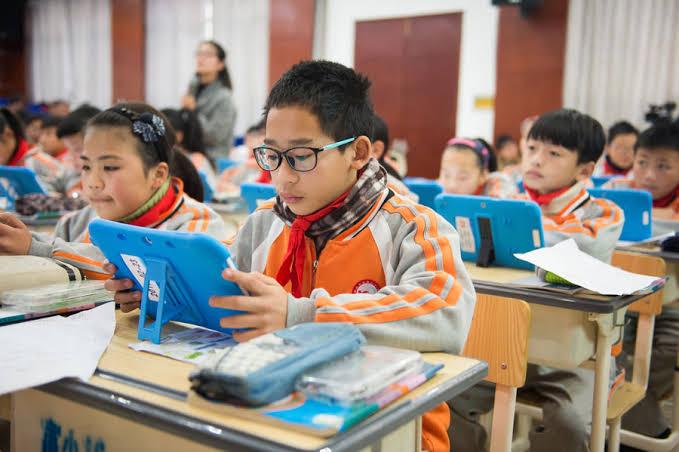Vice-Premier Sun Chunlan has stated that China is committed to working with other countries to promote innovation in digital education and make it more inclusive and equitable. The announcement came at the opening ceremony of the World Digital Education Conference, which is being co-hosted by the Ministry of Education and the Chinese National Commission for UNESCO. The conference’s theme is “Digital Transformation and Future of Education,” and it is being held online and in-person in Beijing over two days, from Monday to Tuesday.
Sun emphasized that China would collaborate extensively with other countries’ education, technology, and industry sectors to improve research and development of digital education resources. The country aims to produce more digital education products and services that meet various needs. Digital education’s development is beneficial for opening and sharing quality education resources, promoting education equality, and narrowing the regional and urban-rural gap, ensuring that every student has access to high-quality education and more opportunities to excel.
The Vice-Premier also stressed that the world should work together to promote the high-quality development of digital education, which can help advance society and civilization. Digital education can help promote balanced education development and education equality, and Sun’s commitment to promoting innovation in digital education and working with other countries to make it more inclusive and equitable is an essential step towards achieving this goal.
The global pandemic has highlighted the importance of digital education, and there is a growing need for the development of innovative solutions that can support learners and teachers worldwide. The current education system’s traditional methods have been challenged, and online learning has become the new normal. China’s commitment to promoting innovation in digital education comes at a time when the world needs it the most.
The conference will provide an opportunity for policymakers, educators, and industry leaders to exchange ideas and best practices on digital education’s future. As a leading country in the field of education technology, China is well-positioned to contribute to the conference’s success. The event’s online format will enable participants worldwide to share their experiences and perspectives on the latest digital education trends and innovations, making it a truly global conversation.
China’s commitment to promoting innovation in digital education and working with other countries to make it more inclusive and equitable is an essential step towards achieving balanced education development and education equality. The World Digital Education Conference is an excellent opportunity for the global community to share best practices, exchange ideas, and collaborate on innovative solutions that will enable high-quality education for every student worldwide.
During a recent conference, a speaker emphasized that as we promote digital education, it is crucial to remember that the fundamental purpose of education is to nurture people. While digital education changes the way teaching and learning are conducted, what remains unchanged is the essence of education. It is important to recognize the significance of face-to-face interactions between teachers and students, emotional communications, and the influence of cultural atmosphere. Along with passing on knowledge and answering questions, teachers should also teach by setting examples.
The Minister of Education, Huai Jinpeng, highlighted the Chinese government’s emphasis on the development of digital education. Digital education is an important component of the Digital China initiative, and China aims to value the integrated development of digital and traditional education, combine online and in-person teaching and learning, and promote systematic innovation in education concept, method, and mode. This will allow digital education to better serve the people.
Huai also shared that China has made remarkable progress in education digitalization, with 100 percent of primary and secondary schools having internet access and 99.5 percent equipped with multimedia classrooms. The Smart Education of China platform, launched in March last year, has become the largest repository of education resources globally. Since its foundation, the platform has had more than 6.7 billion visits. It has made basic education smarter and delivered quality and balanced results, with 27,000 quality courses of higher education, 13 million overseas registered users from 166 countries and regions.
Furthermore, Huai reported that nearly 55 percent of vocational school teachers have carried out blended teaching, exploring digital technologies and resources such as virtual simulation and digital twinning to simulate real-life scenarios and meet internship and training needs.
Huai emphasized that digital education should feature fairness and inclusiveness, be of higher quality, be accessible to all, and contribute to green development and promote open cooperation. By achieving these goals, digital education can better serve the people and promote holistic development. In conclusion, the Chinese government values digital education and will continue to prioritize its development while simultaneously maintaining the essence of education.
In conclusion, the Chinese government is committed to digital education as a crucial component of the Digital China initiative. They recognize the importance of preserving the personal connection between teachers and students, even as digital methods of teaching and learning become more prevalent. By promoting digital education that is accessible, inclusive, and of high quality, the Chinese government hopes to provide students with the skills they need to succeed in the modern world.
